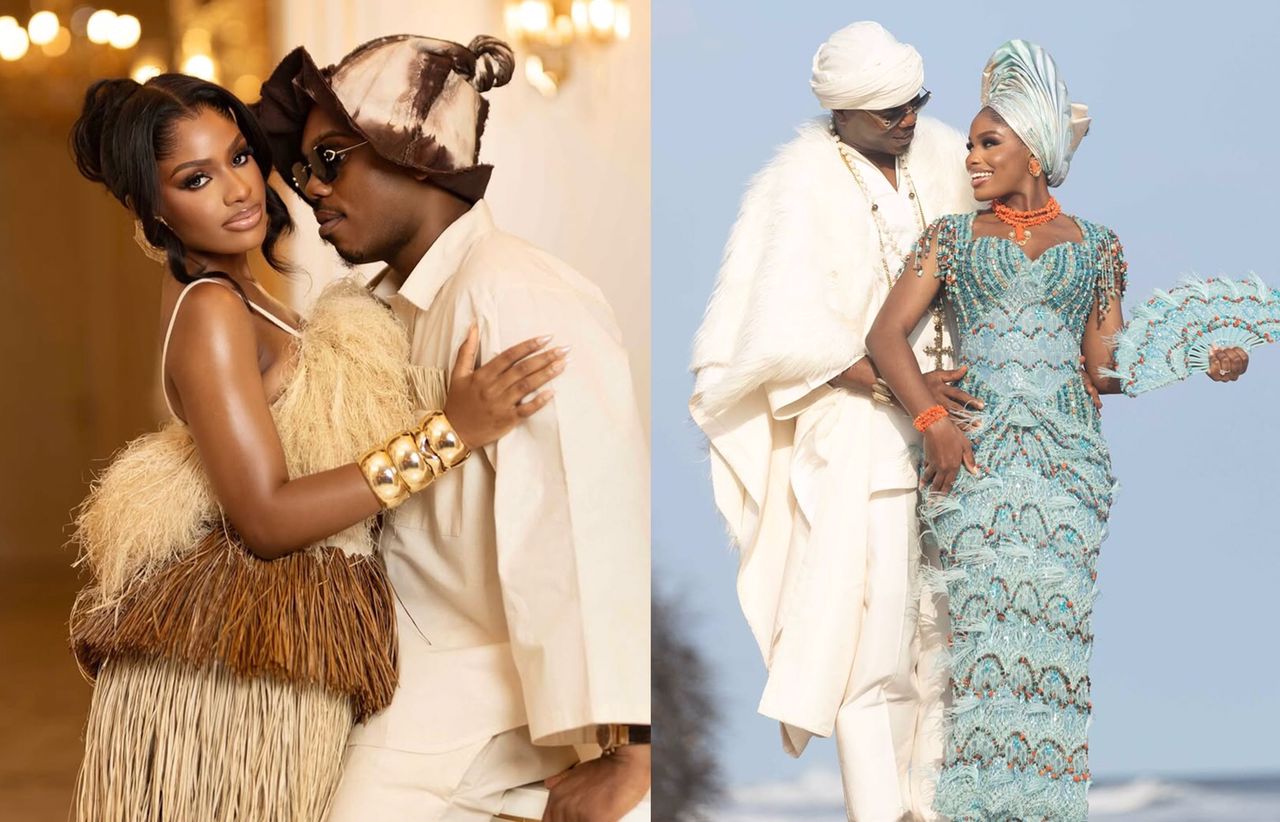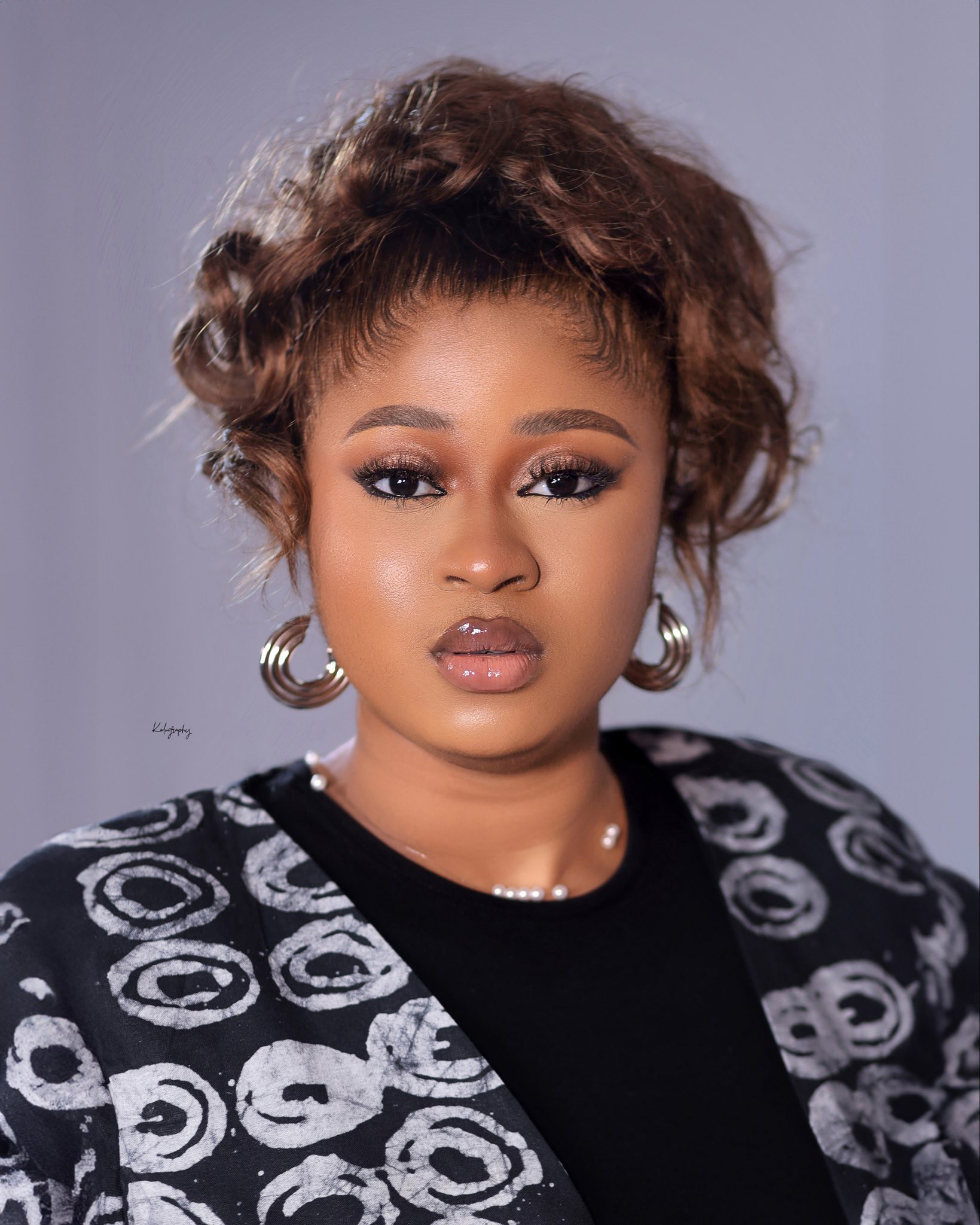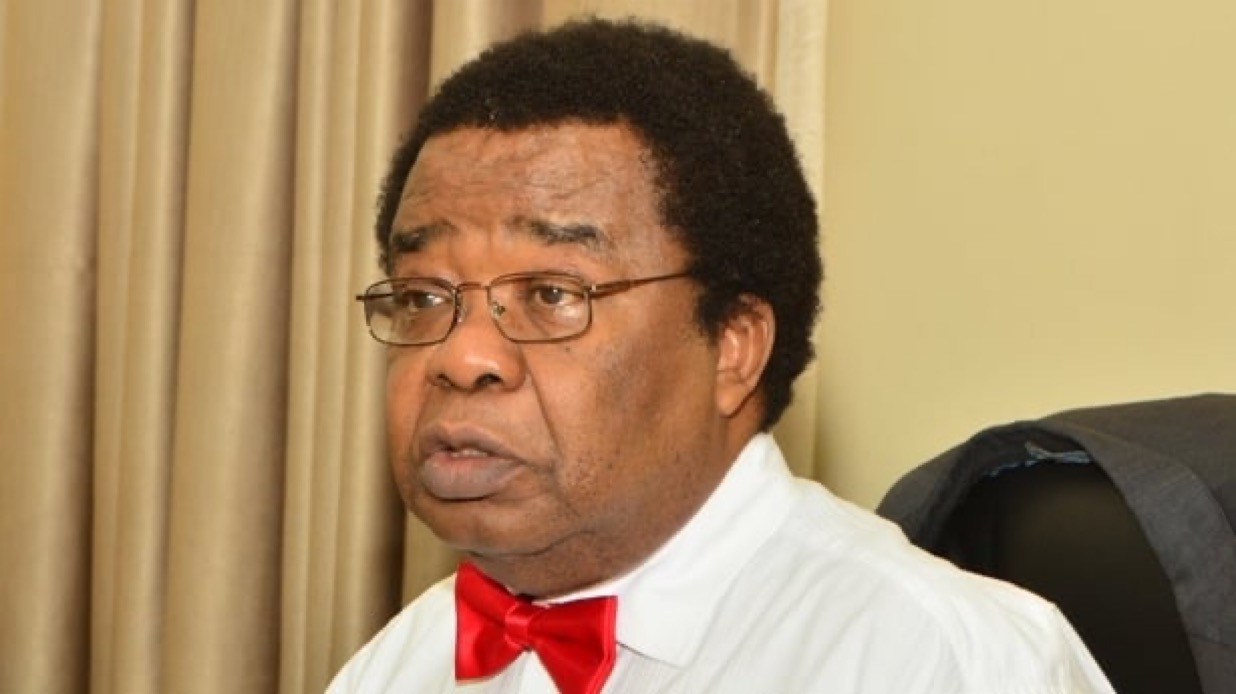
“What Does Love Mean?” – Billionaire’s Daughter Kene Responds to Question About Her Feelings for Husband Ugo, Reveals Real Reason She Married Him

In an era where social media romanticizes whirlwind love stories and extravagant fairy-tale weddings, a quiet yet striking revelation from Kene, daughter of billionaire industrialist Obiora Nwankwo, has captured the public’s attention and stirred a larger conversation about what truly defines love in a marriage. Known for her low-profile demeanor despite hailing from one of Nigeria’s wealthiest families, Kene broke her silence this week during a rare sit-down interview, addressing a question that many have whispered about but few dared to ask: “Do you love your husband, Ugo?”
Her response was simple, yet profound—and undeniably unexpected. “What does love mean?” she asked in return, pausing before giving an answer that has since sparked headlines and heated debates across social platforms. “I married Ugo because of his support. That’s the truth.”
With those words, Kene peeled back the veil on a relationship that has been heavily scrutinized since its inception. Ugo, a tech entrepreneur from Enugu with modest roots, married into the Nwankwo dynasty two years ago, in a ceremony that blended tradition, glamour, and opulence. The union raised eyebrows at the time, with many speculating that it was a strategic alliance rather than a romantic bond. Critics pointed to Ugo’s rapidly rising profile and Kene’s famously stoic public appearances as signs of a marriage built on convenience, not connection.
Now, Kene’s candid words have not only reignited those conversations but also challenged the very definition of what a loving relationship looks like in modern times—especially among the elite.
In the interview, Kene reflected on her upbringing in a household that prized legacy, discipline, and loyalty. “I was raised to understand responsibility,” she said. “My father built everything we have from the ground up. He used to say, ‘You don’t just marry for passion. Passion fades. Marry for partnership. Marry someone who can weather the storm with you.’”
For many, this ethos might sound old-fashioned. But to Kene, it is reality. She described Ugo as a man who was “present” in the most critical phases of her life—through personal losses, professional pivots, and the overwhelming pressure of being born into wealth and expectation.
“He didn’t try to overshadow me,” she continued. “He didn’t chase the money. He didn’t need me to be smaller for him to shine. Instead, he stood by me when I doubted myself. When I was sick, when I failed, when I wanted to disappear. He showed up, quietly. Consistently. And I realized, that’s love to me.”
Her voice didn’t waver, but it carried weight. Social media exploded shortly after the clip surfaced, with #WhatDoesLoveMean trending for hours. Responses varied—some praised her honesty, calling it a refreshing take on the realistic foundations of marriage. Others criticized her for what they interpreted as a transactional view of relationships.
“This is sad. Where’s the romance?” one user tweeted, while another wrote, “I’d rather have support than empty words. Kene is speaking facts.”
While the world debates, insiders close to the couple suggest that Kene and Ugo’s relationship may be far deeper than it appears on the surface. A family friend who chose to remain anonymous shared, “They are not your Instagram couple. No kissing for the camera, no public displays. But I’ve seen the way she looks at him when he’s not watching. There’s respect. There’s calm.”
Ugo has not made any public statements regarding Kene’s interview, though those who know him describe him as intensely private and “more focused on building than broadcasting.” Their marriage, though unconventional by the standards of fairy tales, may be offering a blueprint for a different kind of love story—one that emphasizes commitment, consistency, and mutual support over butterflies and grand declarations.
Interestingly, Kene admitted during the interview that she used to envy couples who seemed to fall in love instantly, the kind that spoke of fate and sparks flying. But over time, her perspective shifted. “I used to think something was wrong with me because I didn’t feel that ‘magic’ people always talk about,” she said. “But then I realized, the magic for me was finding someone who saw me fully and stayed. Even when it wasn’t easy. Even when it wasn’t convenient.”
Her story has resonated with many young people, particularly women, who are increasingly skeptical of performative love and hungry for something more grounded. Psychologists and relationship experts have chimed in, with some noting that Kene’s view aligns with long-standing research: marriages based on mutual respect, aligned values, and emotional support tend to outlast those built solely on passion.
As Kene and Ugo continue to live quietly, building a life out of the limelight, the world watches with renewed curiosity. Not to see them pose for couple goals, but to understand how their version of love defies tradition and reflects a more honest, perhaps more sustainable, reality.
“People keep asking if I’m in love,” Kene concluded. “I say, I am in something better. I’m in peace.”
In an age of curated love stories and picture-perfect proposals, her words might just be the revolution we didn’t know we needed.


